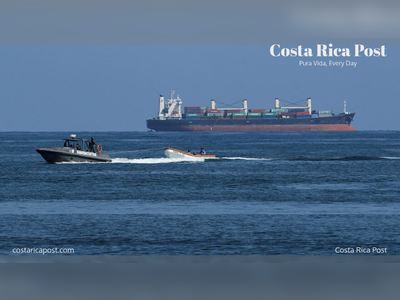Nearshoring and Friendshoring: Trends Favoring Foreign Investment in Costa Rica
Strategic shifts in global supply chains are drawing foreign investments and reinvestments to Costa Rica through nearshoring and friendshoring.
The global landscape of foreign investment is undergoing significant changes, prominently driven by trends known as nearshoring and friendshoring.
These strategies emerged as responses to the drawbacks of globalization initiated in the 1990s, which had previously facilitated the growth of global trade through free trade agreements and integrated logistics processes.
The COVID-19 pandemic, alongside the ongoing container crisis and geopolitical conflicts, catalyzed a renewed focus on these investment strategies.
Jaime Morales, trade manager at a prominent consulting firm, notes that nearshoring has gained traction as businesses recognized the challenges associated with offshoring—where investments were moved to distant territories, primarily in Asia, to cut costs.
Since around 2010, there has been a noticeable shift towards relocating operations to countries closer to the main business hubs.
Nearshoring specifically refers to the trend of attracting US investments and production processes to geographically proximate countries.
Oscar Álvarez, an expert in international trade, explains that this relocation strategy aims to reduce vulnerability to global crises by positioning operations closer to home.
Conversely, friendshoring redirects supply chains toward countries deemed politically and economically stable, aimed at minimizing business interruptions.
This term was popularized by Janet Yellen, former US Treasury Secretary, during a conference in 2022. According to Morales, friendshoring is based on amicable relations between countries and shared political ideologies.
Costa Rica has emerged as an attractive destination for both strategies, facilitating a smoother flow of investments for US companies and their value chains.
However, experts caution that not all transitions are advantageous.
The costs associated with production and labor in these new locales often surpass previous expenses.
For instance, relocating investments from China to Mexico offers geographical advantages and a more favorable business environment but incurs higher production and labor costs.
Both nearshoring and friendshoring aim for a balance between low costs, nearby value chains, and stable economic environments with legal certainty.
Experts assert that while it is beneficial for investments to shift from Asia to Costa Rica, maintaining and enhancing an attractive business climate is crucial; otherwise, these investments may favor competitors such as Mexico, Colombia, Panama, or the Dominican Republic.
Marco Vinicio Ruíz, former head of the Ministry of Foreign Trade in Costa Rica, highlights that reinvestment, a significant aspect of the nearshoring and friendshoring trends, involves foreign companies currently operating in the country that export to the US. He pointed out that Costa Rica's Free Trade Zone Law incentivizes these companies with eight years of income tax exemption, thereby facilitating reinvestment efforts.
This environment is intended to promote job creation and strengthen the domestic economy.
As companies reconsider their international locations, the dynamics of nearshoring and friendshoring significantly impact emerging markets like Costa Rica, providing opportunities for growth within a transformed global trade landscape.
These strategies emerged as responses to the drawbacks of globalization initiated in the 1990s, which had previously facilitated the growth of global trade through free trade agreements and integrated logistics processes.
The COVID-19 pandemic, alongside the ongoing container crisis and geopolitical conflicts, catalyzed a renewed focus on these investment strategies.
Jaime Morales, trade manager at a prominent consulting firm, notes that nearshoring has gained traction as businesses recognized the challenges associated with offshoring—where investments were moved to distant territories, primarily in Asia, to cut costs.
Since around 2010, there has been a noticeable shift towards relocating operations to countries closer to the main business hubs.
Nearshoring specifically refers to the trend of attracting US investments and production processes to geographically proximate countries.
Oscar Álvarez, an expert in international trade, explains that this relocation strategy aims to reduce vulnerability to global crises by positioning operations closer to home.
Conversely, friendshoring redirects supply chains toward countries deemed politically and economically stable, aimed at minimizing business interruptions.
This term was popularized by Janet Yellen, former US Treasury Secretary, during a conference in 2022. According to Morales, friendshoring is based on amicable relations between countries and shared political ideologies.
Costa Rica has emerged as an attractive destination for both strategies, facilitating a smoother flow of investments for US companies and their value chains.
However, experts caution that not all transitions are advantageous.
The costs associated with production and labor in these new locales often surpass previous expenses.
For instance, relocating investments from China to Mexico offers geographical advantages and a more favorable business environment but incurs higher production and labor costs.
Both nearshoring and friendshoring aim for a balance between low costs, nearby value chains, and stable economic environments with legal certainty.
Experts assert that while it is beneficial for investments to shift from Asia to Costa Rica, maintaining and enhancing an attractive business climate is crucial; otherwise, these investments may favor competitors such as Mexico, Colombia, Panama, or the Dominican Republic.
Marco Vinicio Ruíz, former head of the Ministry of Foreign Trade in Costa Rica, highlights that reinvestment, a significant aspect of the nearshoring and friendshoring trends, involves foreign companies currently operating in the country that export to the US. He pointed out that Costa Rica's Free Trade Zone Law incentivizes these companies with eight years of income tax exemption, thereby facilitating reinvestment efforts.
This environment is intended to promote job creation and strengthen the domestic economy.
As companies reconsider their international locations, the dynamics of nearshoring and friendshoring significantly impact emerging markets like Costa Rica, providing opportunities for growth within a transformed global trade landscape.








